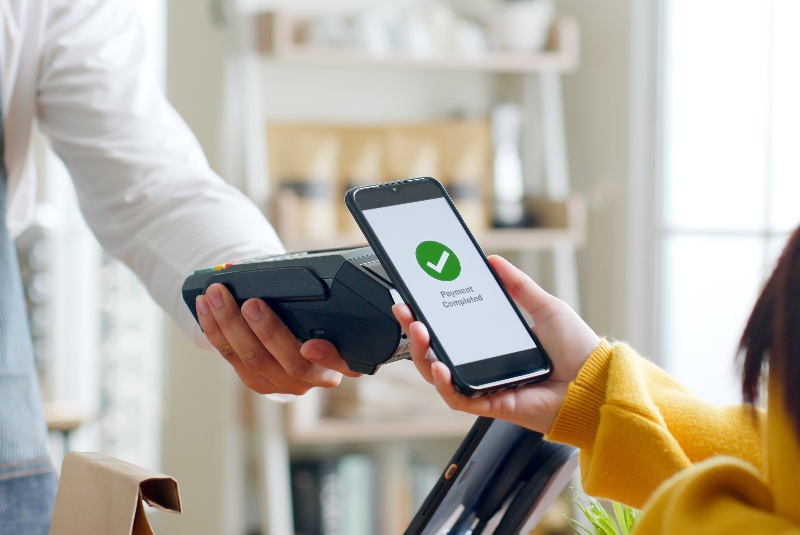Leave the hassle of carrying a wallet around with the potential to lose it. New digital wallets are a convenient way to keep all your cards in one protected place and make payments easier with the simple tap of your phone.
About Digital Wallets
Digital wallets have become an integral part of our daily lives, offering a seamless and secure way to manage our financial transactions. In this article, we will delve into the world of digital wallets, exploring their security features, convenience, and the myriad possibilities they bring to the table.
Understanding Digital Wallets
Digital wallets, often referred to as e-wallets or mobile wallets, are digital tools that allow individuals to store, manage, and use their financial information electronically. These wallets come in various forms, such as mobile apps or web-based platforms, and they can store a wide range of payment methods, including credit cards, debit cards, and even cryptocurrencies.
The Security Aspect
Security is paramount when it comes to digital wallets. Users entrust these platforms with sensitive financial information, and ensuring the safety of their data is a top priority. Fortunately, digital wallets employ a range of security measures to protect users’ assets:
Encryption
One of the fundamental security features of digital wallets is encryption. When you make a transaction or store your payment information in a digital wallet, it is encrypted, making it extremely difficult for unauthorized parties to access your data. This encryption process involves converting your financial data into complex codes that can only be deciphered with the correct encryption key.
Biometric Authentication
Many digital wallets incorporate biometric authentication methods, such as fingerprint recognition or facial recognition, to add an extra layer of security. This ensures that only the authorized user can access and use the wallet, making it highly secure against unauthorized access.
Multi-factor Authentication
Multi-factor authentication is another security feature commonly found in digital wallets. It requires users to provide two or more forms of verification before they can access their wallet or complete a transaction. This can include something the user knows (a password or PIN), something they have (a registered device), and something they are (biometric data).
Transaction Alerts
Digital wallets often provide real-time transaction alerts, notifying users of any activity on their accounts. This allows users to quickly detect and respond to any suspicious transactions, enhancing the overall security of the wallet.
The Convenience Factor
Beyond security, digital wallets offer unparalleled convenience to users in a variety of ways:
Speedy Transactions
With a digital wallet, transactions are lightning-fast. Whether you’re paying for groceries at a store or splitting a dinner bill with friends, you can complete transactions with just a few taps or clicks. This eliminates the need to carry physical cash or dig through your wallet for the right card.
Online Shopping Made Easy
Digital wallets are a boon for online shoppers. When making purchases on e-commerce platforms, you can simply select your digital wallet as the payment method, and all your payment information is automatically filled in, saving you time and effort.
Bill Payments and Reminders
Many digital wallets offer features for bill payments and reminders. You can set up recurring payments for utilities, rent, and subscriptions, ensuring you never miss a due date. Additionally, some wallets send notifications to remind you of upcoming bills, helping you stay organized and on top of your finances.
Integration with Loyalty Programs
Several digital wallets integrate with loyalty and rewards programs, allowing you to earn points, discounts, or cashback on your purchases. This not only saves you money but also simplifies the process of managing and redeeming rewards.
Exploring Possibilities
Digital wallets have opened up a world of possibilities beyond just payments. Here are some of the exciting prospects they bring to the table:
Financial Inclusion
Digital wallets have the potential to enhance financial inclusion by providing access to financial services for underserved populations. In regions where traditional banking infrastructure is limited, digital wallets can serve as a gateway to banking services, enabling people to save, send, and receive money securely.
Global Accessibility
Digital wallets are not bound by geographical boundaries. They can be used for international transactions and remittances, making it easier for individuals and businesses to engage in cross-border commerce. This global accessibility is especially beneficial for freelancers, entrepreneurs, and travelers.
Smart Contracts and Cryptocurrencies
Some digital wallets are equipped to handle cryptocurrencies and smart contracts. This opens up opportunities for decentralized finance (DeFi) applications, allowing users to invest, trade, and engage in various blockchain-based financial activities directly from their wallets.
Contactless Payments
The rise of near-field communication (NFC) technology has made contactless payments more accessible through digital wallets. This technology enables users to make payments by simply tapping their mobile devices or cards on compatible terminals, reducing the need for physical cash or card swipes.
Conclusion
Digital wallets have evolved into indispensable tools that offer both security and convenience to users. With encryption, biometric authentication, and multi-factor authentication, they ensure the safety of financial data. Moreover, they streamline transactions, simplify online shopping, and provide features for bill payments and rewards integration.
Beyond these advantages, digital wallets unlock a world of possibilities, from financial inclusion to global accessibility and support for cryptocurrencies and smart contracts. As the digital wallet ecosystem continues to innovate and expand, it is poised to play an increasingly significant role in the way we manage and transact our finances. Embracing this technology can lead to a more secure, efficient, and flexible financial future.





